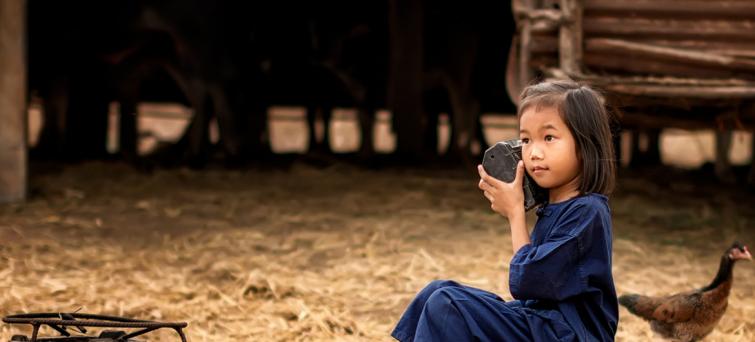
Radio still a powerful worldwide tool for ‘dialogue, tolerance and peace’: Guterres
New York, Feb 14 (IBNS): Radio is a powerful tool that continues to promote “dialogue, tolerance and peace,” United Nations Secretary-General António Guterres said in message on Thursday, marking World Radio Day.
“Even in today’s world of digital communications, radio reaches more people than any other media platform” explained the UN chief, adding that it “conveys vital information and raises awareness on important issues”.
“And it is a personal, interactive platform where people can air their views, concerns, and grievances” he added, noting that radio “can create a community”.
UN Radio was established on 13 February 1946, and since 2013, the day has been commemorated to recognize radio as a powerful communication tool and a low-cost medium.
“For the United Nations, especially our peacekeeping operations, radio is a vital way of informing, reuniting and empowering people affected by war”, said Guterres.
Despite the rise of the internet, many parts of the world, especially remote and vulnerable communities, have no access, making radio broadcasting via transmitters, a vital lifeline. Joining a community of local listeners, also provides a platform for public discussion, irrespective of education levels.
Moreover, it has a strong and specific role in emergency communication and disaster relief.
“On this World Radio Day, let us recognize the power of radio to promote dialogue, tolerance and peace”, concluded the Secretary-General.
Radio still sparking ‘new conversations’
The UN Educational, Scientific and Cultural Organization (UNESCO) underscored “the unique, far-reaching power of radio to broaden our horizons and build more harmonious societies”.
“Radio stations from major international networks to community broadcasters today remember the importance of radio in stimulating public debate, increasing civic engagement and inspiring mutual understanding”, UNESCO Director-General Audrey Azoulay said in her message.
Since its invention as the first wireless communication medium well over a hundred years ago, “radio has sparked new conversations and broadcast new ideas into people’s homes, villages, universities, hospitals and workplaces,” she continued. “To this day, dialogue across the airwaves can offer an antidote to the negativity that sometimes seem to predominate online, which is why UNESCO works across the world to improve the plurality and diversity of radio stations”.
The UNESCO chief pointed out that radio has adapted to 21st century changes and offers new ways to participate in conversations that matter, retaining its role as “one of the most reactive, engaging media there is”, especially for the most disadvantaged.
For example, she flagged that rural women constitute one of the most under-represented groups in the media and are twice as likely as men to be illiterate, “so radio can be a critical lifeline to express themselves and access information”.
Azoulay made clear that “UNESCO provides support to radio stations in sub-Saharan Africa that enable women to participate in public debate, including on often-neglected issues such as forced marriage, girls’ education or childcare”.
Linguistic diversity, and people’s right to express themselves on-air in their own languages, is also crucial – especially true in 2019 which has been designated by the International Year of Indigenous Languages by the UN.“In former conflict zones, radio can dispel fear and present the human face of former foes”, she elaborated, citing North-West Colombia where community radios are healing old wounds “by highlighting the good deeds of demobilized combatants, such as clearing polluted waterways”.
Around the world, the “inclusion of diverse populations makes societies more resilient, more open and more peaceful”, Azoulay spelled out.
“The challenges we face – whether they be climate change, conflict or the rise in divisive views – increasingly depend on our ability to speak to each other and find common solutions”, she concluded.
Image Credit: UNESCO
Support Our Journalism
We cannot do without you.. your contribution supports unbiased journalism
IBNS is not driven by any ism- not wokeism, not racism, not skewed secularism, not hyper right-wing or left liberal ideals, nor by any hardline religious beliefs or hyper nationalism. We want to serve you good old objective news, as they are. We do not judge or preach. We let people decide for themselves. We only try to present factual and well-sourced news.







